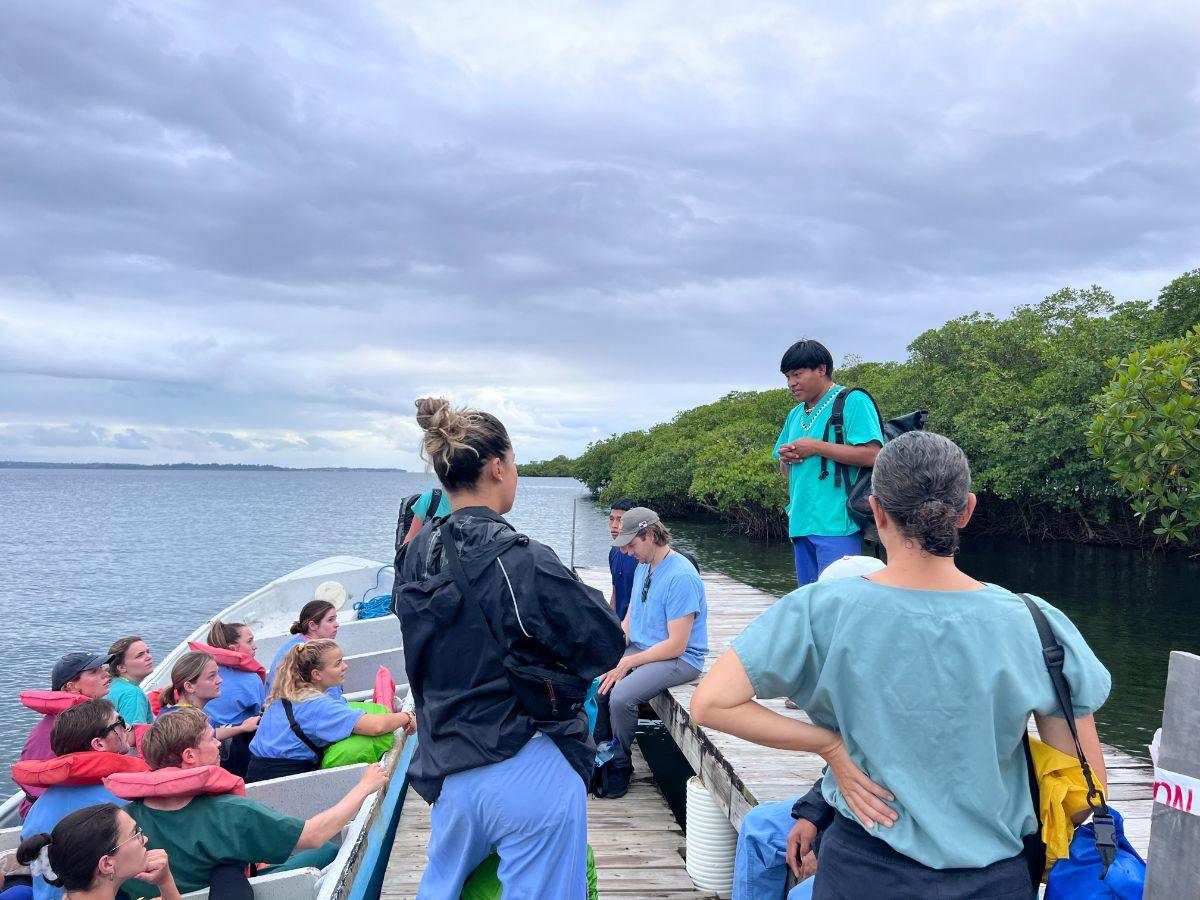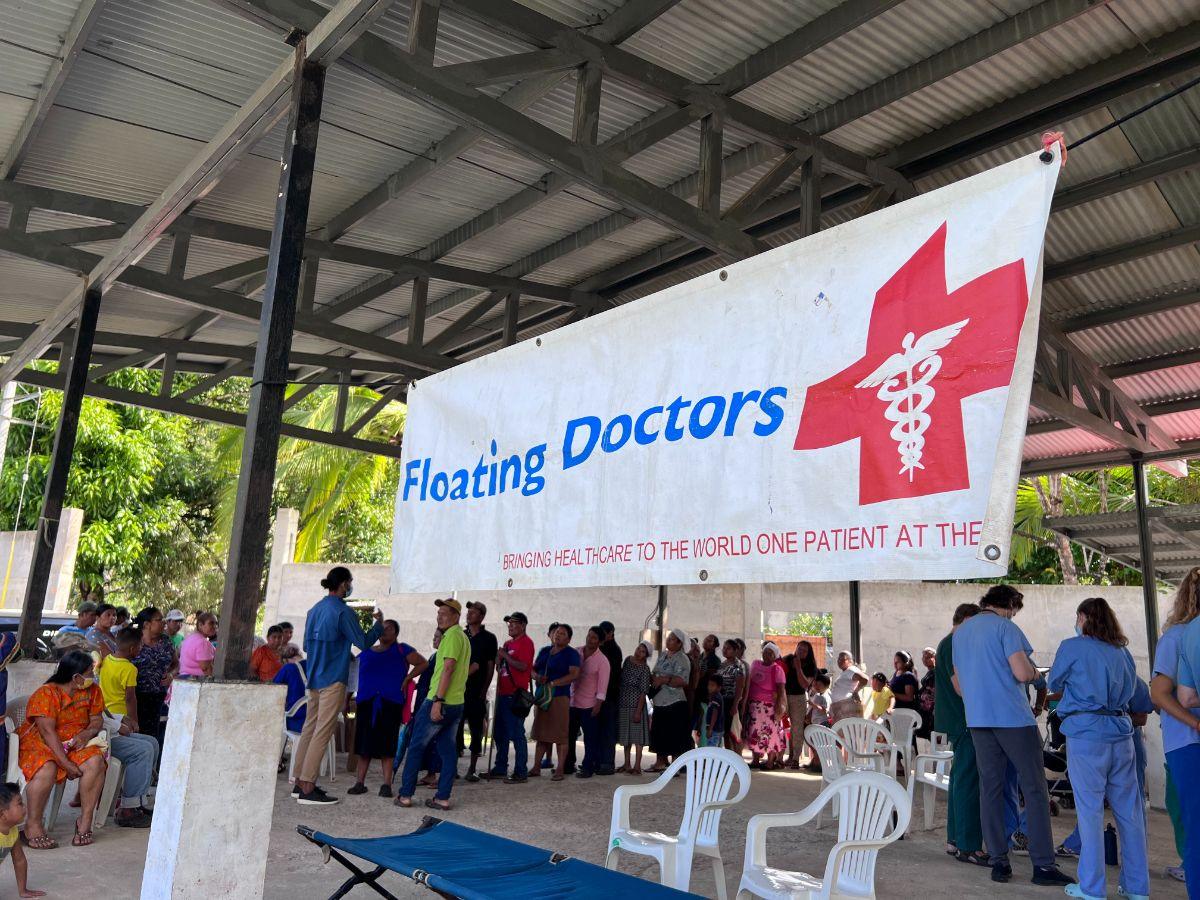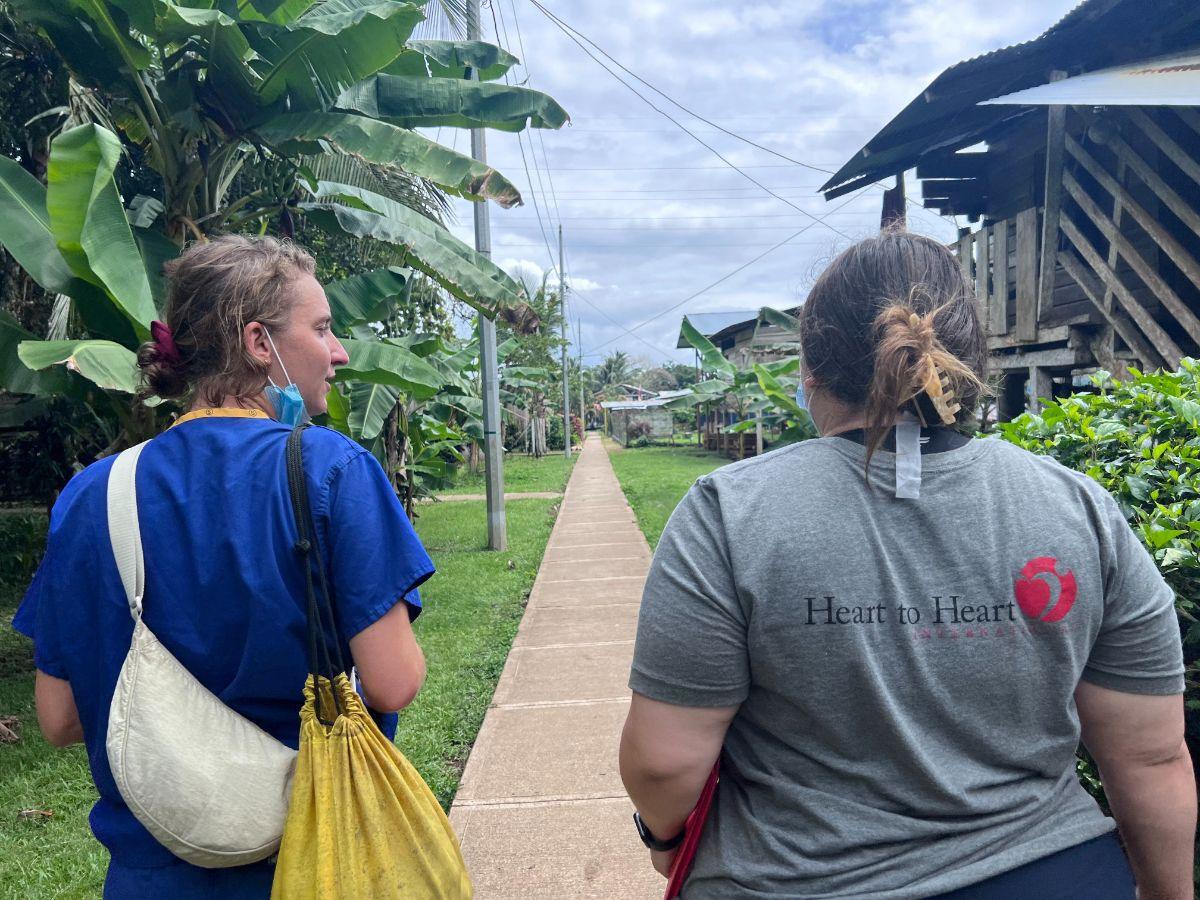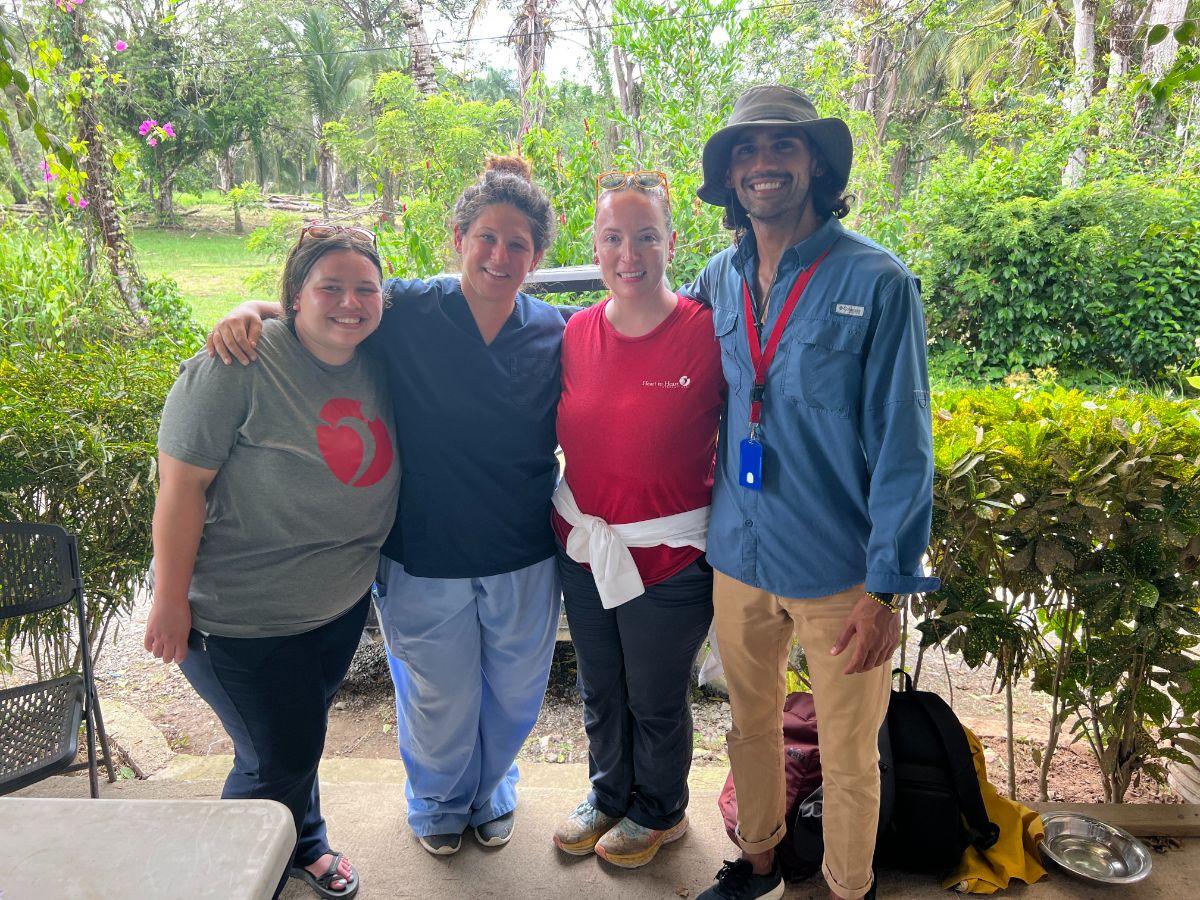Last month, Heart to Heart International’s Disaster Response Manager, Emily Schmidt and Partner Specialist, Abbey Stoetzel traveled to Panama to visit with our longtime partner Floating Doctors. Floating Doctors is located in the Bocas del Toro region of Panama and focuses on developing a sustainable rural health system to support the rural indigenous communities. By establishing an ongoing presence in Panama, the organization provides healthcare services and continuity of care to 25 communities.
Guest Post by Emily Schmidt, Manager of Disaster Response at Heart to Heart International
HHI accompanied Floating Doctors to one of their regular clinic sites in Bajo Cedro, one of 25 communities where Floating Doctors provides regular healthcare services. Bajo Cedro has approximately 1500 residents and no medical resources. The nearest hospital is 45 minutes away. Quiny Smith, a community leader, told us that visits by Floating Doctors are the only way that most residents have access to health services and medications. Public transport to the nearest hospital is time consuming and costly for this low-income community. Even if residents can make a visit to a hospital, medications are in short supply and often prohibitively expensive.
At their clinic sites, Floating Doctors attend to new patients experiencing acute illness and provide primary care services, including delivering to their patients three-month supplies of medications to treat a wide array of everyday diseases, such as diabetes, asthma, heart conditions, high-blood pressure, etc.



One of Floating Doctors primary health providers invited us to accompany her on a home visit to a bed-ridden, elderly patient. The patient’s daughter had taken her to the hospital the day before when her chronic lung disease had flared up causing her to experience vomiting, fever and difficulty breathing. And even though she had visited the hospital the day prior, her daughter rushed to the Floating Doctors clinic as soon as they arrived to inform the physicians that her mother was still extremely unwell.
We were invited into their home where we took off our shoes and accompanied the daughter and one of Floating Doctors staff physicians, Dr. Mikah, to the patient’s bedside. Dr. Mikah discussed symptoms and medical history, took the patient’s vital signs and reviewed the medications that had been sent home with the patient. Dr. Mikah then very carefully explained her diagnosis with the patient and her family.
Floating Doctors had previously diagnosed her with COPD (a disease that causes airflow blockage and breathing-related problems). This was likely caused by prolonged exposure to smoke from cooking fuel and fire that is commonly used to prepare food inside homes without proper ventilation in impoverished communities like Bajo Cedro all around the world.
Floating Doctors had given the patient an inhaler to treat her symptoms, but when the patient experienced increased symptoms of her COPD, she started using the inhaler too much. This caused her to run out of this vital medication to treat her condition before Floating Doctors was able to make their regular three-month visit. She became extremely ill and susceptible to other conditions like an upper-respiratory infection as a result.
Unfortunately, the hospital she visited did not have this medication available but provided her with antibiotics. In addition to not having enough supply of this basic medicine to treat her COPD, Dr. Mikah also realized that the hospital did not provide adequate instruction on the antibiotics the patient received. Dr. Mikah gave careful instructions to the patient and her family for taking the antibiotics and explained that she mustn’t overuse her inhaler, otherwise she would run out and likely become ill again.
Cases like these are all too common in the communities where Floating Doctors provides healthcare. However, Floating Doctors’ own access to vital medications and supplies for their patients are dependent on support from Heart to Heart International and other charitable organizations.



